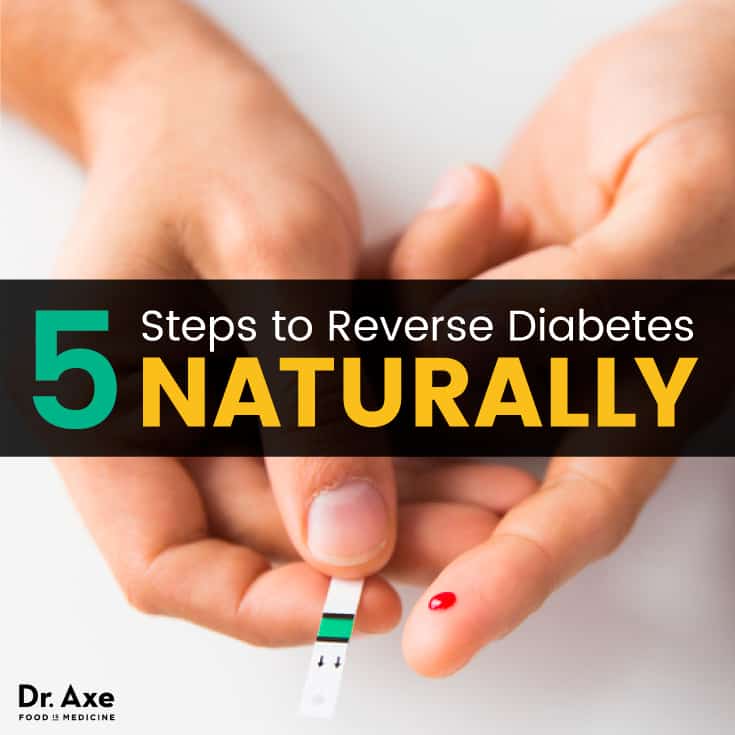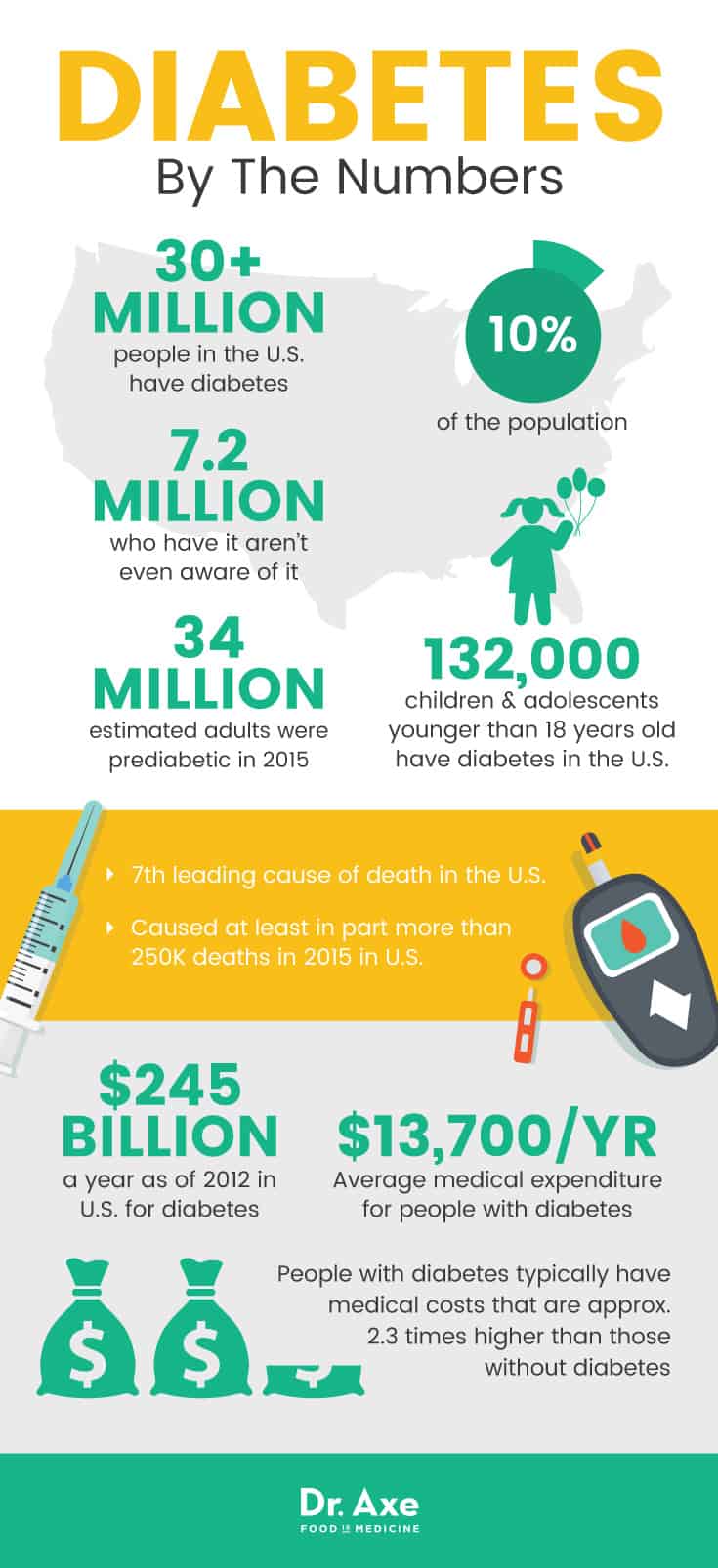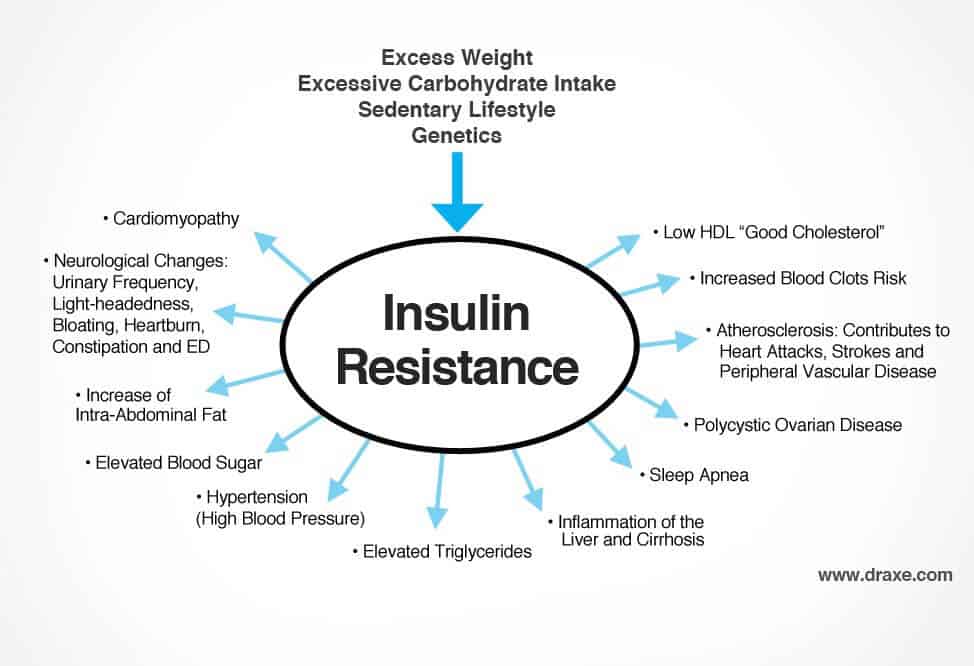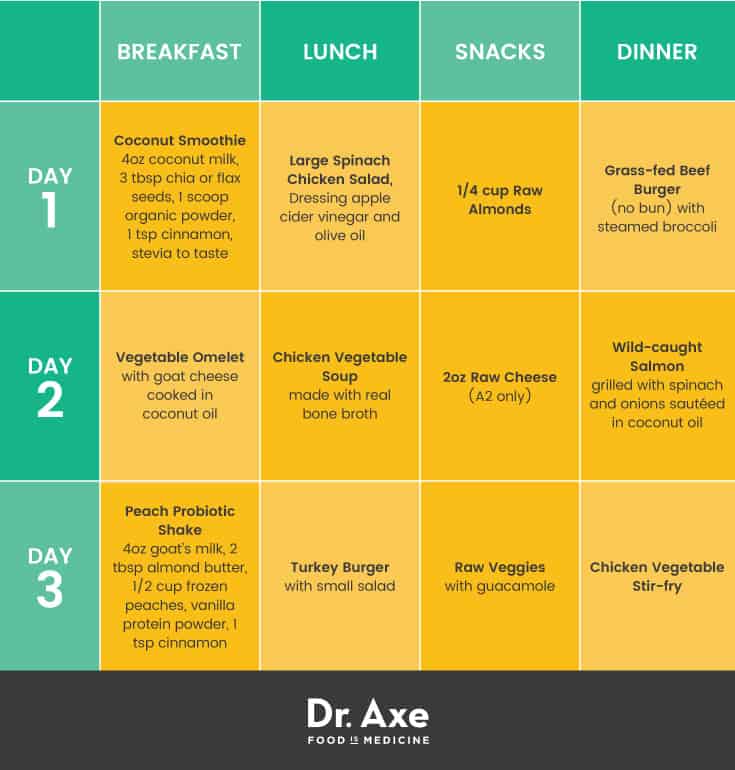This Dr. Axe content is medically reviewed or fact checked to ensure factually accurate information.
With strict editorial sourcing guidelines, we only link to academic research institutions, reputable media sites and, when research is available, medically peer-reviewed studies. Note that the numbers in parentheses (1, 2, etc.) are clickable links to these studies.
The information in our articles is NOT intended to replace a one-on-one relationship with a qualified health care professional and is not intended as medical advice.
This article is based on scientific evidence, written by experts and fact checked by our trained editorial staff. Note that the numbers in parentheses (1, 2, etc.) are clickable links to medically peer-reviewed studies.
Our team includes licensed nutritionists and dietitians, certified health education specialists, as well as certified strength and conditioning specialists, personal trainers and corrective exercise specialists. Our team aims to be not only thorough with its research, but also objective and unbiased.
The information in our articles is NOT intended to replace a one-on-one relationship with a qualified health care professional and is not intended as medical advice.
How to Reverse Diabetes Naturally
May 30, 2018

According to the 2017 National Diabetes Statistics Report, over 30 million people living in the United States have diabetes. That’s almost 10 percent of the U.S. population. And diabetes is the seventh leading cause of death in the United States, causing, at least in part, over 250,000 deaths in 2015. That’s why it’s so important to take steps to reverse diabetes and the diabetes epidemic in America.
Type 2 diabetes is a dangerous disease that can lead to many other health conditions when it’s not managed properly, including kidney disease, blindness, leg and food amputations, nerve damage, and even death. (1)
Type 2 diabetes is a completely preventable and reversible condition, and with diet and lifestyle changes, you can greatly reduce your chances of getting the disease or reverse the condition if you’ve already been diagnosed. If you are one of the millions of Americans struggling with diabetes symptoms, begin the steps to reverse diabetes naturally today. With my diabetic diet plan, suggested supplements and increased physical activity, you can quickly regain your health and reverse diabetes the natural way.
The Diabetes Epidemic
Diabetes has grown to “epidemic” proportions, and the latest statistics revealed by the U.S. Centers for Disease Control and Prevention state that 30.3 million Americans have diabetes, including the 7.2 million people who weren’t even aware of it. Diabetes is affecting people of all ages, including 132,000 children and adolescents younger than 18 years old. (2)
The prevalence of prediabetes is also on the rise, as it’s estimated that almost 34 million U.S. adults were prediabetic in 2015. People with prediabetes have blood glucose levels that are above normal but below the defined threshold of diabetes. Without proper intervention, people with prediabetes are very likely to become type 2 diabetics within a decade.
The cost of diabetes to our nation is a staggering $245 billion a year as of 2012. The American Diabetes Association reports that the average medical expenditure for people with diabetes was about $13,700 per year. People with diabetes typically have medical costs that are approximately 2.3 times higher than those without diabetes. (3)

Aside from the financial costs of diabetes, the more frightening findings are the complications and co-existing conditions. In 2014, 7.2 million hospital discharges were reported with diabetes as a listed diagnosis. Patients with diabetes were treated for major cardiovascular diseases, ischemic heart disease, stroke, lower-extremity amputation and diabetic ketoacidosis.
The Cause of Diabetes
Diabetes is an illness related to elevated blood sugar levels. When you stop releasing and responding to normal amounts of insulin after eating foods with carbohydrates, sugar and fats, you have diabetes. Insulin, a hormone that’s broken down and transported to cells to be used as energy, is released by the pancreas to help with the storage of sugar and fats. But people with diabetes don’t respond to insulin properly, which causes high blood sugar levels and diabetes symptoms.
It’s important to note that there’s a difference between type 1 and type 2 diabetes. Here’s an explanation of the two types of diabetes and what causes these conditions:
Type 1 Diabetes
Type 1 diabetes is commonly called “juvenile diabetes” because it tends to develop at a younger age, typically before a person turns 20 years old. Type 1 diabetes is an autoimmune disease where the immune system attacks the insulin-producing beta cells in the pancreas.
The damage to the pancreatic cells leads to a reduced ability or complete inability to create insulin. Some of the common causes that trigger this autoimmune response may include a virus, genetically modified organisms, heavy metals, or foods like wheat, cow’s milk and soy. (4)
The reason foods like wheat and cow’s milk have been linked to diabetes is because they contain the proteins gluten and A1 casein. These proteins can cause leaky gut, which in turn causes systemic inflammation throughout the body and over time can lead to autoimmune disease.
Type 1 diabetes is rarely reversed, but with the right dietary changes major improvements in blood sugar levels can be seen and a person can often reduce his or her dependence on insulin and medications.
Type 2 Diabetes
Type 2 diabetes is the most common form of diabetes, and unlike type 1 diabetes, it usually occurs in people over the age of 40, especially those who are overweight. Type 2 diabetes is caused by insulin resistance, which means that the hormone insulin is being released, but a person doesn’t respond to it appropriately. Type 2 diabetes is a metabolic disorder that’s caused by high blood sugar. The body can keep up for a period of time by producing more insulin, but over time the insulin receptor sites burn out. Eventually, diabetes can affect nearly every system in the body, impacting your energy, digestion, weight, sleep, vision and more. (5)
There are many underlying causes of type 2 diabetes, and the disease usually develops because of a combination of factors, including: (6)
- having a poor diet
- being overweight
- having high levels of inflammation
- living a sedentary lifestyle
- experiencing high amounts of stress
- having a family history of diabetes (especially a parent or sibling)
- having high blood pressure or a history of heart disease
- having a hormonal condition (like hyperthyroidism, polycystic ovary syndrome or Cushing’s syndrome)
- being exposed to toxins, viruses or harmful chemicals
- taking certain medications (like those that disrupt insulin production)
Thankfully, there are ways to reverse diabetes naturally.

5-Step Plan to Reverse Diabetes
Step 1: Remove These Foods to Reverse Diabetes Naturally
Certain foods negatively affect your blood sugar levels, cause inflammation and trigger immune responses. To reverse diabetes naturally, the first step is to remove these foods from your diet:
- Refined sugar: Refined sugar rapidly spikes blood glucose, and soda, fruit juice and other sugary beverages are the worst culprits. These forms of sugar enter the bloodstream rapidly and can cause extreme elevations in blood glucose. (7) Even though natural sweeteners like raw honey and maple syrup are better options, they can still affect blood sugar levels, so only use these foods on occasion. Your best option is to switch to stevia, a natural sweetener that won’t have as much of an impact.
- Grains: Grains, especially gluten-containing grains like wheat, contain large amounts of carbohydrates that are broken down into sugar within only a few minutes of consumption. Gluten can cause intestinal inflammation, which affects hormones like cortisol and leptin, and can lead to spikes in blood sugar. I recommend removing all grains from your diet for 90 days as your body adjusts to this healing program. Then you can try bringing sprouted ancient grains back into your diet in small amounts.
- Conventional cow’s milk: Conventional cow’s milk and dairy products should be eliminated, especially for people with type 1 diabetes. Dairy can be a fantastic food for balancing blood sugar if it comes from goat’s, sheep or A2 cows. But stay away from all other forms of dairy because the A1 casein produced by conventional cows will harm the body and trigger an immune response similar to gluten. When buying dairy, only purchase raw and organic products from pasture-raised animals.
- Alcohol: Alcohol can dangerously increase blood sugar and lead to liver toxicity. Research published in Annals of Internal Medicine found that there was a 43 percent increased incidence of diabetes associated with heavy consumption of alcohol, which is defined as three or more drinks per day. (8) Beer and sweet liquors are especially high in carbohydrates and should be avoided.
- GMO foods: GMO corn, soy and canola have been linked to kidney and liver disease and may promote diabetes. I suggest removing all GMO foods and all packaged foods from your diet. Opt for products that are labeled organic or GMO-free.
- Hydrogenated oils: Remove hydrogenated, rancid oils from your diet, including vegetable oil, soybean oil, cottonseed oil and canola oil. Because these oils are processed, treated at very high temperatures, and combined with bleaching agents and artificial dyes, consuming them has been linked to many health concerns, including diabetes.
Step 2: Incorporate These Foods to Treat Diabetes
To reverse or prevent type 2 diabetes, add the following foods into your diet:
- Foods high in fiber: Research shows that 90 percent of the U.S. population doesn’t consume enough fiber on a daily basis. High-fiber foods help slow down glucose absorption, regulate your blood sugar levels and support detoxification. Aim to eat at least 30 grams of fiber per day, which can come from vegetables (like Brussels sprouts, peas and artichokes), avocados, berries, nuts and seeds, especially chia seeds and flaxseeds. (9)
- Foods high in chromium: Chromium is a nutrient that’s involved in normal carbohydrate and lipid metabolism. Foods high in chromium can improve the glucose tolerance factor in your body and naturally balance out blood glucose levels. It plays a role in insulin pathways, helping bring glucose into our cells so it can be used for bodily energy. Broccoli has the highest amounts of chromium, but you can also find it in raw cheese, green beans, brewer’s yeast and grass-fed beef. (10)
- Magnesium-rich foods: Magnesium can help regulate blood sugar levels because it plays a role in glucose metabolism. Research shows that diabetes is frequently associated with magnesium deficiency. Eating magnesium-rich foods, like spinach, chard, pumpkin seeds, almonds, yogurt and black beans, can improve type 2 diabetes symptoms. (11)
- Healthy fats: Medium-chained fatty acids found in coconut and red palm oil can help balance blood sugar levels, and they serve as the preferred fuel source for your body rather than sugar. Using coconut milk, ghee and grass-fed butter can also help balance out your blood sugar levels, so include these foods into your meals and smoothies. Some research actually suggests that a high-fat, low carb diet known as the keto diet may be a novel approach to reverse diabetes naturally, although you don’t technically have to go into ketosis to achieve the benefits of healthy fats in treating diabetes. (12)
- Clean protein: Eating protein foods has a minimal effect on your blood glucose levels, and it can slow down the absorption of sugar. Some of the best sources of clean protein include wild-caught fish, which contains omega-3 fats that reduce inflammation, grass-fed beef, organic chicken, lentils, eggs and bone broth.
- Foods with a low glycemic load: The glycemic index of a food tells you about the blood glucose-raising potential of the food. Foods that have a high glycemic index are converted into sugar after being eaten more quickly than low glycemic foods. If you are fighting diabetes, stick to low glycemic foods like non-starchy vegetables, stone fruits and berries, nuts, seeds, avocados, coconut, organic meat, eggs, wild-caught fish, and raw pastured dairy.
One benefit of these foods is that they generally promote weight loss, which is a major factor in reversing diabetes. A study following 306 diabetic individuals found that losing weight under a structured program (with the supervision of a primary care physician) resulted in almost half of the participants going into total diabetes remission. This means they were able to stay off their medications permanently (assuming they stayed on a healthy diet). Quality of life also improved by over seven points on average for the patients on the dietary regimen, while it decreased by about three points for the control group. (13)
Step 3: Take These Supplements for Diabetes
1. Chromium Picolinate
Taking 200 micrograms of chromium picolinate three times daily with meals can help improve insulin sensitivity. A review published in Diabetes Technology and Therapeutics evaluated 13 studies that reported significant improvement in glycemic control and substantial reductions in hyperglycemia and hyperinsulinemia after patients used chromium picolinate supplementation. Other positive outcomes from supplementing with chromium picolinate included reduced cholesterol and triglyceride levels and reduced requirements for hypoglycemic medication. (14)
2. Cinnamon
Cinnamon has the ability to lower blood sugar levels and improve your sensitivity to insulin. A study conducted at Western University of Health Sciences in Pomona, Calif. found that the consumption of cinnamon is associated with a statistically significant decrease in plasma glucose levels, LDL cholesterol and triglyceride levels. Cinnamon consumption also helped increase HDL cholesterol levels. (15)
To take advantage of the many health benefits of cinnamon, add one teaspoon to food, smoothies or tea. You can also take one to two drops of cinnamon essential oil internally by adding it to food or tea, or combine three drops of cinnamon oil with half a teaspoon of coconut oil and massage it into your wrists and abdomen.
3. Fish Oil
Taking a fish oil supplement can help improve markers of diabetes by reducing triglyceride levels and raising HDL cholesterol levels. Research published in the Journal of Research in Medical Sciences shows that omega-3 fatty acids found in fish oil are necessary for proper insulin function, preventing insulin intolerance and reducing inflammation. (16) To use fish oil as a natural remedy for diabetes, take 1,000 milligrams daily.
4. Alpha Lipoic Acid
Alpha lipoic acid is an antioxidant that helps turn glucose into fuel for the body. It effectively improves insulin sensitivity and reduces symptoms of diabetic neuropathy, such as weakness, pain and numbness that’s caused by nerve damage. Although we make alpha lipoic acid and it can be found in some food sources, like broccoli, spinach and tomatoes, taking an ALA supplement will increase the amount that circulates in your body, which can be extremely beneficial when trying to reverse diabetes naturally. (17)
5. Bitter Melon Extract
Bitter melon helps lower blood glucose levels, and it regulates the body’s use of insulin. Studies show that bitter melon extract can help reduce and manage symptoms of diabetes, including insulin resistance, heart complications, kidney damage, blood vessel damage, eye disorders and hormone irregularities. (18)
Step 4: Follow This Eating Plan to Reverse Diabetes
If you want to balance your blood sugar and see results quickly, then follow this diabetes eating plan as closely as possible. Focus on getting plenty of clean protein, healthy fats and fiber into every meal, which can help reverse diabetes.
Start by trying these first three days of the plan, and then use a combination of these foods going forward. Review the list of foods that you should be eating from Step 2, and bring those healthy, diabetes-fighting foods into your diet as well. It may seem like a major change to your diet at first, but after some time you will begin to notice the positive effects these foods are having on your body.

Some other recipes that fit into this eating plan include:
Step 5: Exercise to Balance Blood Sugar
Exercise reduces chronic disease and can help reverse diabetes naturally. Studies show that exercise improves blood glucose control and can prevent or delay type 2 diabetes, while also positively affecting your blood pressure, heart health, cholesterol levels and quality of life. (19)
Exercise naturally supports your metabolism by burning fat and building lean muscle. To prevent and reverse diabetes, make exercise a part of your daily routine. This doesn’t necessary mean that you have to spend time at the gym. Simple forms of physical activity, like getting outside and walking for 20 to 30 minute every day, can be extremely beneficial, especially after meals. Practicing yoga or stretching at home or in a studio is another great option.
In addition to walking and stretching exercises, try interval training cardio, like burst training, or weight training three to five days a week for 20–40 minutes. Burst training can help you burn up to three times more body fat than traditional cardio and can naturally increase insulin sensitivity. You can do this on a spin bike with intervals, or you can try burst training at home.
Strength training using free weights or machines is also recommended because it helps you build and maintain muscle, which supports balanced blood sugar and sugar metabolism.
Final Thoughts
- More than 30 million people — nearly 10 percent of the population — have diabetes in the U.S., including children. Almost 7.2 million of those people aren’t even aware of it.
- Another 34 million adults are prediabetic.
- It’s the seventh leading cause of death in the U.S. and costs hundreds of billions of dollars per year.
- Type 1 diabetes typically occurs before someone turns 20 and is rarely reversed, but it can be managed through diet and lifestyle changes.
- Type 2 diabetes is more common and usually occurs in people over 40, especially if they’re overweight.
- In order to reverse diabetes naturally, remove foods like refined sugar, grains, conventional cow’s milk, alcohol, GMO foods and hydrogenated oils from your diet; incorporate healthy foods like foods high in fiber, chromium, magnesium, healthy fats and clean protein, along with foods with low glycemic loads; take supplements for diabetes; follow my diabetic eating plan; and exercise to balance blood sugar.
